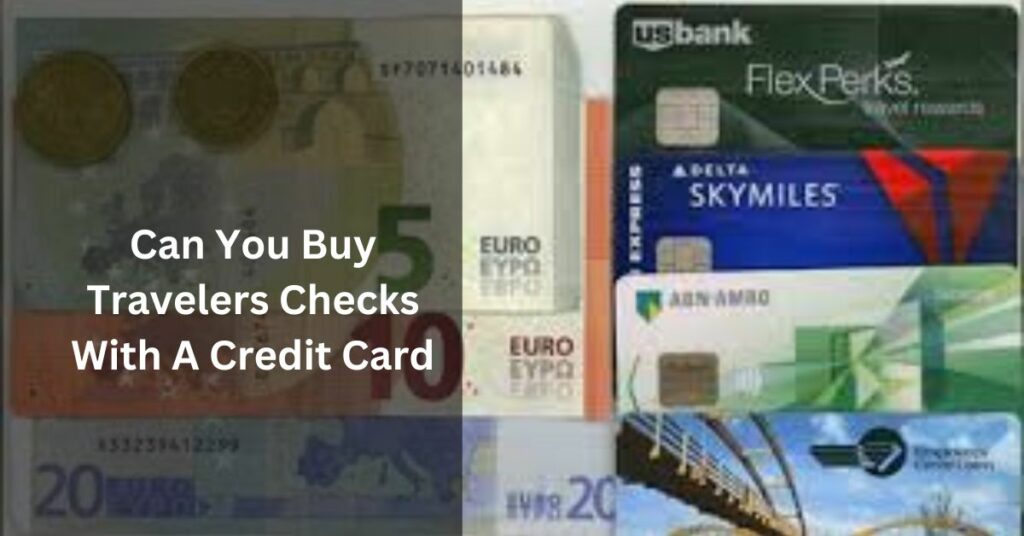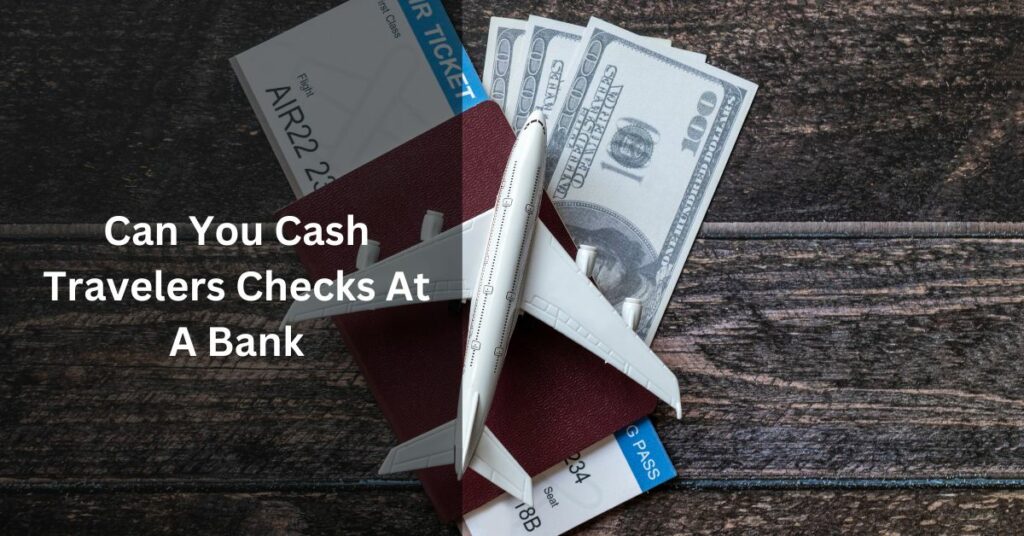As someone who loves to travel, I understand the importance of having access to money while on the road. In today’s world, credit and debit cards have become the go-to option for most travelers. However, there is still a debate about whether traveler’s checks are still relevant in this day and age.
One question that often comes up is whether you can purchase traveler’s checks with a credit card. In this article, I will explore the history of traveler’s checks and how they became popular before the rise of credit and debit cards. I will also delve into whether it is possible to buy traveler’s checks with a credit card and highlight some pros and cons of using these payment methods while traveling.
Finally, I will provide some tips for managing your money while on the road so that you can make informed decisions about which payment method works best for you.
Understanding Traveler’s Checks
Get ready to learn all about the convenient and secure method of payment that’s been trusted by travelers for decades!
Traveler’s checks are a form of prepaid currency that can be used anywhere in the world. They offer peace of mind, knowing that if they’re lost or stolen, they can be replaced with minimal hassle. Additionally, traveler’s checks don’t expire, so you can hold onto them until your next trip.
When purchasing traveler’s checks, you’ll need to provide identification and pay a fee. The fee varies depending on where you purchase them from and the amount of money you get in return.
Once you have your traveler’s checks, you simply sign them when it’s time to use them. However, with the rise of credit and debit cards, many travelers are opting for these instead.
The Rise of Credit and Debit Cards
The increasing popularity of credit and debit cards has led to the decline of traditional payment methods such as cash and checks. 67% of Americans now prefer to use cards for everyday purchases. It’s not difficult to see why – cards offer convenience, security, and rewards that cash or checks simply can’t match. With just a swipe or tap, one can make a purchase without having to carry around bulky wallets or worry about losing money.
Plus, card issuers often provide fraud protection and other safeguards that minimize the risk of financial loss. However, while credit and debit cards have become ubiquitous in modern society, there are still some situations where they may not be accepted. One example is when traveling abroad – some merchants may only accept local currency or other forms of payment like traveler’s checks.
But even in those cases, it’s possible to use a credit card to purchase traveler’s checks from certain providers.
Can You Purchase Traveler’s Checks with a Credit Card?
Ready to travel but not sure how to pay for things abroad? Here’s some great news – you can easily obtain traveler’s checks using your trusty credit card!
Many banks and financial institutions will allow you to purchase traveler’s checks with a credit card, either online or in person. This can be a convenient option for those who prefer the security of traveler’s checks over carrying large amounts of cash. However, it’s important to note that purchasing traveler’s checks with a credit card may come with additional fees and interest charges.
Some institutions may charge a flat fee for purchasing the checks or add on an extra percentage for using a credit card. Before making any purchases, it’s important to research the terms and fees associated with both the traveler’s check provider and your credit card issuer.
Now let’s explore the pros and cons of using these traditional payment methods while traveling abroad.
Pros and Cons of Traveler’s Checks
When it comes to traveling abroad, using traveler’s checks can offer peace of mind in terms of security. However, their acceptance may not be as widespread as other forms of payment, and finding a place to cash them can sometimes be inconvenient.
From my experience, weighing the pros and cons of using traveler’s checks is crucial in determining if they’re the right option for your travel needs.
Security
Feeling concerned about safety? Don’t fret, we’ve got you covered with some helpful tips on keeping your finances secure.
One of the main advantages of using traveler’s checks is their security. Unlike cash or credit cards, they require a signature and can be replaced if lost or stolen. Additionally, many issuers offer 24/7 customer support and emergency replacement services to ensure that you always have access to your funds.
To further increase your security when using traveler’s checks, it’s important to keep them in a safe place while traveling and only carry what you need for each day. You should also make copies of the serial numbers on each check and keep them separate from the actual checks in case they are lost or stolen.
By taking these precautions, you can feel confident that your finances are protected while on the road.
When it comes to acceptance, traveler’s checks are widely accepted at banks, hotels, and exchange bureaus around the world. However, it’s always best to check with the specific location beforehand to ensure that they accept them as payment.
With their high level of security and widespread acceptance, traveler’s checks are an excellent option for anyone looking for a reliable way to carry money while traveling abroad.
Acceptance
You can rest easy knowing that your money will be widely accepted around the world with traveler’s checks. Compared to cash, which can be lost or stolen, traveler’s checks offer a safer and more secure option for carrying money while traveling.
Not only do they provide peace of mind, but they also eliminate the need to carry large amounts of cash.
In terms of acceptance, traveler’s checks are generally accepted at banks and exchange offices in most countries. However, it’s important to note that some businesses may not accept them as a form of payment.
It’s always best to check ahead of time if traveler’s checks are accepted before relying on them as your primary method of payment.
With this in mind, many travelers still opt to bring a combination of cards, cash, and traveler’s checks for added convenience and flexibility during their travels.
Convenience
The convenience of traveler’s checks lies in their ability to be easily replaced if lost or stolen, making them a reliable option for those who want to have peace of mind while traveling. These checks can also be used as an alternative method of payment when you’re unable to use your credit card or withdraw cash from an ATM.
Additionally, some merchants may prefer traveler’s checks over credit cards because they don’t have to pay any fees associated with processing the transaction. However, it’s important to note that purchasing traveler’s checks with a credit card may not always be convenient. Some banks and financial institutions may charge additional fees for this service, which can add up quickly if you plan on buying multiple checks.
It’s also important to make sure that the establishment where you intend on using these checks accepts them as a form of payment before making the purchase. With this in mind, it’s essential that travelers research all options available and choose the most cost-effective and convenient method for managing their money while abroad.
While traveler’s checks can offer convenience and reliability during travel, there are other tips for managing your money that can help ensure a smooth trip without any financial mishaps.
Tips for Managing Your Money While Traveling
When I travel, managing my money is always a top priority. I prefer to use credit and debit cards for most transactions, but I also make sure to have some cash on hand for emergencies or situations where cards are not accepted.
In addition, I’ve found that prepaid cards or mobile banking can be useful options for budgeting and keeping track of expenses while on the road.
Using Credit and Debit Cards
Don’t miss out on the convenience of using plastic for all your travel expenses – it’s easier than ever to pay on the go with just a swipe or tap. Credit and debit cards are widely accepted around the world, so you don’t have to worry about carrying large sums of cash. In fact, some cards even offer perks like travel rewards points and cashback that can help offset your expenses.
When using your credit or debit card abroad, be sure to check with your bank about any foreign transaction fees or ATM withdrawal fees that may apply. It’s also a good idea to notify your bank of your travel plans beforehand so they don’t flag any suspicious activity on your account.
Overall, using plastic is a convenient and secure way to manage your money while traveling.
As much as credit and debit cards are convenient for traveling, it’s still important to carry some cash in case of emergencies or situations where card payments are not accepted.
In the next section, I will discuss how much cash you should carry when traveling and how to keep it safe.
Carrying Cash
Take a moment to imagine walking down a bustling street in a foreign country, feeling the weight of cash in your pocket as you explore local markets and try new foods. While credit and debit cards are widely accepted in many countries, it’s always good to have some cash on hand for smaller purchases or places that don’t accept cards. Carrying cash can also help with budgeting, as you can physically see how much money you have left for the day.
However, carrying too much cash can be risky. It’s important to only carry what you need for the day and keep it in a secure place like a money belt or hidden pocket. You should also consider exchanging currency at reputable exchange offices rather than using ATMs on the street, which may be more susceptible to fraud or theft.
With these precautions in mind, carrying cash can be a convenient and efficient way to handle expenses while traveling abroad. When considering prepaid cards or mobile banking options, it’s important to research any fees associated with these services before making a decision. Some prepaid cards may charge activation fees or transaction fees for each use, while certain mobile banking apps may require an internet connection or data usage.
However, prepaid cards and mobile banking options offer added security compared to carrying large amounts of cash with you at all times. They can also provide easy access to funds without needing to visit an exchange office or ATM frequently during your travels.
Considering Prepaid Cards or Mobile Banking
Carrying a lot of cash while traveling can be risky, especially in unfamiliar places. As I’ve mentioned before, there are ways to secure your cash through various means such as money belts and hotel safes.
However, another option to consider is prepaid cards or mobile banking. Prepaid cards work like debit cards where you load a certain amount of money onto the card and use it as you would any other card. This option is safer than carrying cash since the card can be replaced if lost or stolen. Additionally, some prepaid cards offer travel insurance and protection against fraud.
Mobile banking is also becoming increasingly popular among travelers since it allows you to access your account from anywhere with internet access. You can easily transfer funds between accounts or pay for things using your phone, making it a convenient option when traveling abroad.
Conclusion
Well, folks, that’s the scoop on traveler’s checks and credit cards. It seems like traveler’s checks have become a thing of the past with the rise of electronic payment methods like credit and debit cards.
While it may be possible to purchase traveler’s checks with a credit card, it’s not common practice. Overall, it’s important to weigh the pros and cons when deciding how to manage your money while traveling.
Consider factors such as convenience, security, and fees before making a decision. As they say, “out with the old and in with the new” – but sometimes sticking with what works for you is key.

Meet Audrey and Carl Thompson. This dynamic married couple not only shares a passion for each other but also a deep love for exploring the world. Through their captivating writing, Audrey and Carl offer a unique perspective on traveling as a couple. They delve into their personal experiences, shedding light on the challenges and joys of navigating the globe hand in hand. Their insightful articles address the questions and concerns many travelers face, helping you forge a stronger bond with your partner on your own incredible adventures.



